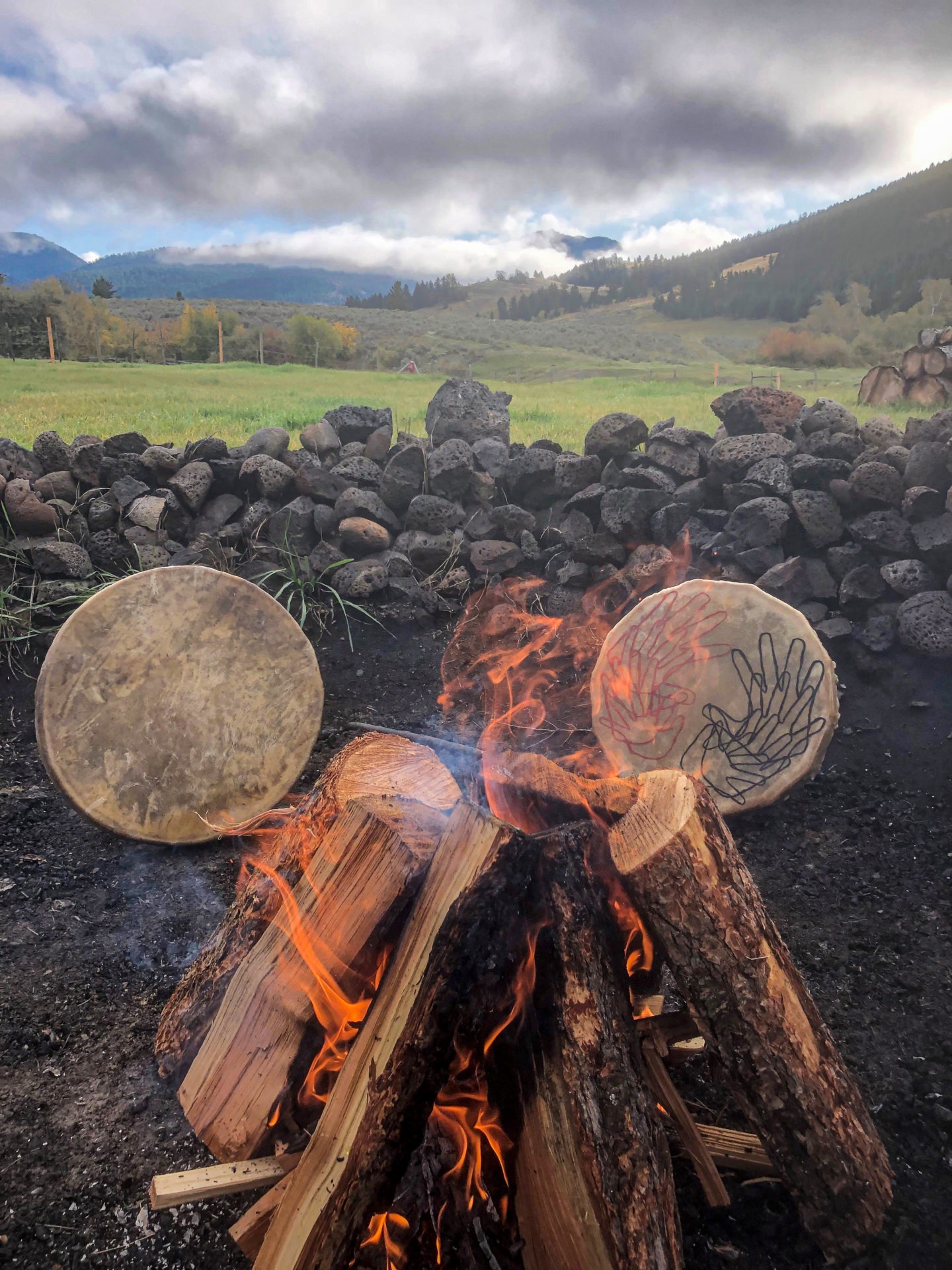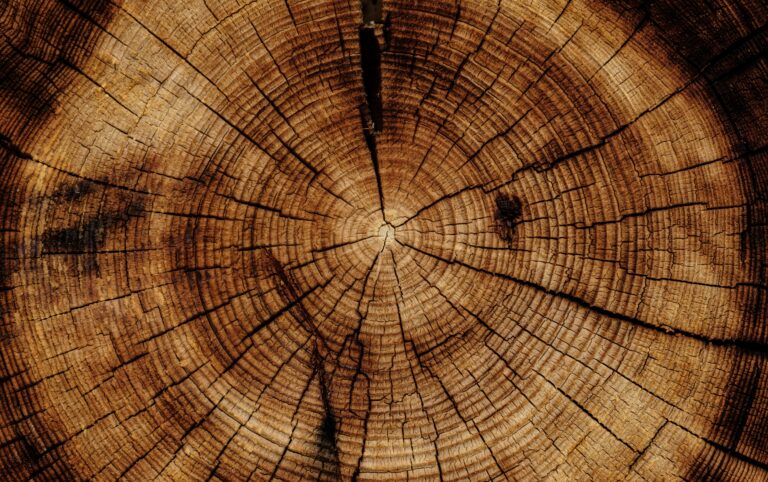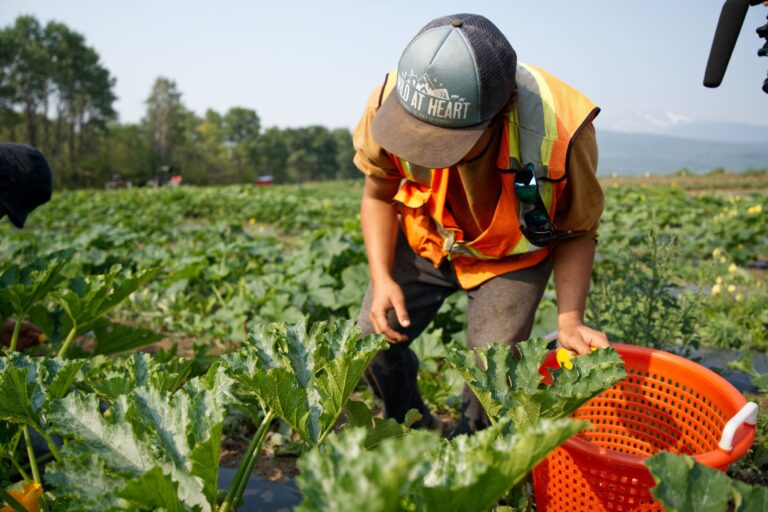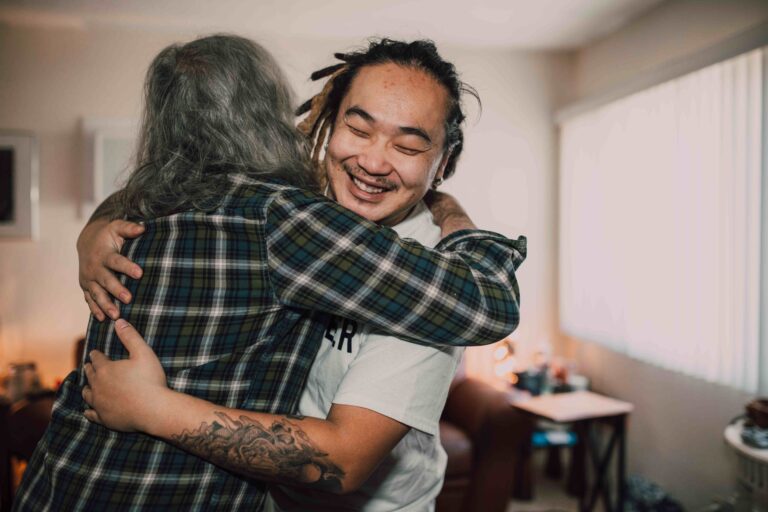
21 June 2021
Listening, Learning and Unlearning: Our Call to Action
Photo Credit: Burning Ceremony after Rural and Indigenous Overdose Action Exchange hosted on the traditional lands of the Tk’emlúps te Secwépemc First Nation in October 2019
Written By: Jen Casorso, Social Health and Well-Being Lead
It has taken me some time to reflect on the discovery at the Kamloops Indian Residential School on the unceded territory of the Tk’emlúps te Secwépemc First Nation. Here at Urban Matters, we’ve held space for each other to engage in conversation and get curious about what is showing up for us right now. For me, it’s more questions: Who would I be if I didn’t admit that I‘ve often felt like an imposter? Who would I be if I didn’t acknowledge the times, I stood by paralyzed by the fear and uncertainty of knowing the right way to respond? Who would I be if I did not risk being uncomfortable over an opportunity for growth? I’ve made mistakes. I’ve taken and continue to take responsibility for the things I can. And I step into the discomfort with our team as we listen, learn, and use our voice to advance change by helping co-create enduring solutions that heal communities and build resilience.
As a team, we each bring our own unique and storied experiences to our work each and every day. My personal experience, is, in part influenced, by my Métis ancestry, childhood trauma, addictions, mental health and my white privilege. For others, it is their Indigenous culture, immigration experience, religious beliefs, poverty, and power and privilege. This is what makes us diverse. This is what drives us to challenge our biases. And this is what pushes us to become better allies, amplify our voices and advocate for resilience among all people.
June is National Indigenous History month and this year it feels heavy on the heart and carries the weight of a legacy, but for many of us, it has felt heavy for far too long. Our journey as a team toward Truth and Reconciliation started several years ago when we acknowledged that we had a responsibility to take action on the Calls to Action in all our projects within communities across Western Canada. In the messiness of learning, we made mistakes along the way—sometimes we assumed too much or took the wrong approach. Each time we delved deeper and questioned our purpose, the reason we are here, and what we need to learn and unlearn as a team to be authentic allies.
Staying curious and accepting we may not get it right the first time allowed us to be adaptable and refocus our listening and learning in different ways. Examining the Indian Act and the timeline of events over the last 150+ years through Indigenous Corporate Training gave us context, deeper knowledge, and a foundation to continue our exploration. For some of us, finding solutions to the overdose crisis in communities provided a place of learning around the impacts of intergenerational trauma and how Indigenous cultural teachings, land-based healing, the strength of family and wisdom of Elders foster resilience and power within Indigenous people. We shared this knowledge within our team to further our understanding and it encouraged us to extend our conversations with knowledge keepers in communities and support the practicing of their protocols and ensuring we follow OCAP principles when working with Indigenous data.
This past year, the pandemic has amplified our learnings that injustices among Indigenous people, Black people, and people of color are far too extreme, and that white people need to acknowledge the ongoing oppression they experience through our society and how it manifests among our social, economic, and environmental systems.
Because of this megaphone of injustices and colonial experiences, our team has spent time examining intersectionality, multiple avenues of oppression, white fragility and how it is embedded within our team. These conversations created discomfort—all our journeys have been different, and it surfaced a lot of emotions for each of us. It also caused us to pause, reflect, and reposition our learning on some fundamental topics to create a common understanding of anti-oppression work and racial justice.
We have a collective drive to bring our best selves to our work and that means continuous learning and listening. This Indigenous Peoples Day and Indigenous History month provides another opportunity to acknowledge the residential school experience, to honour the healing journey of survivors and their families, and to establish new actions to continue the ongoing journey of allyship and reconciliation. Our team has committed to the following immediate and ongoing actions:
- Ongoing all staff sharing circles to support reflection, continuous learning and unlearning;
- Identification and inclusion of meaningful action towards reconciliation and resiliency for Indigenous people within our project work;
- Donations in support of survivors of residential school and their families; and
- Focused team learning on colonialization and the decolonization of our thinking in recognition that it shows up in our work every day
If there’s anything the past year has shown us, it’s that it’s okay to have more questions than answers. Asking ourselves hard questions and engaging in self-reflection is where the work starts. It helps us create change within ourselves: to be better allies, to do better, and to be a small part of the solution.
We encourage you to explore these resources for further learning:
10 Things You Can Do: Kamloops Indian Residential School
Learn About the Land You’re Occupying
A Brief Timeline of the History of Indigenous Relations in Canada




